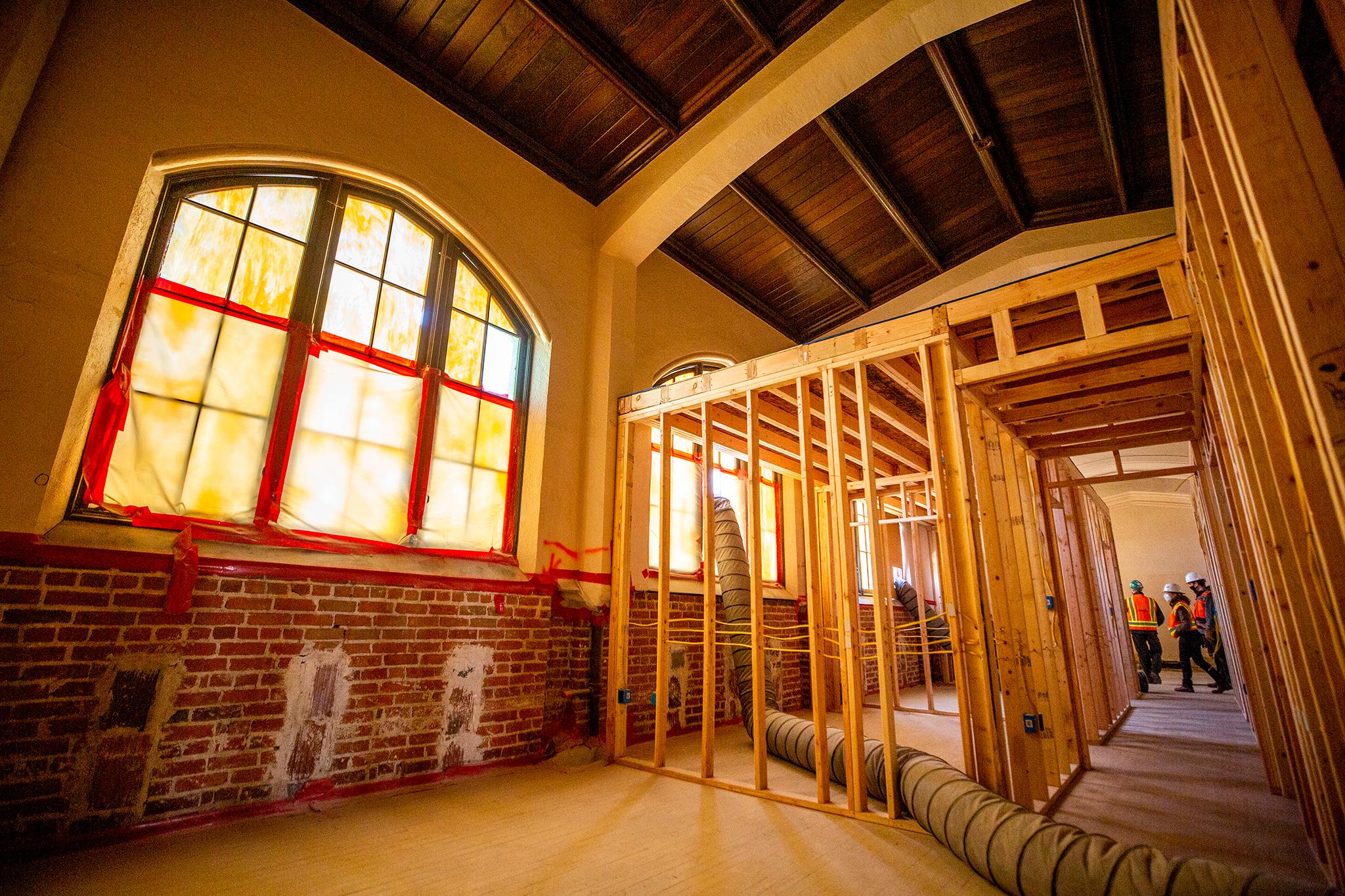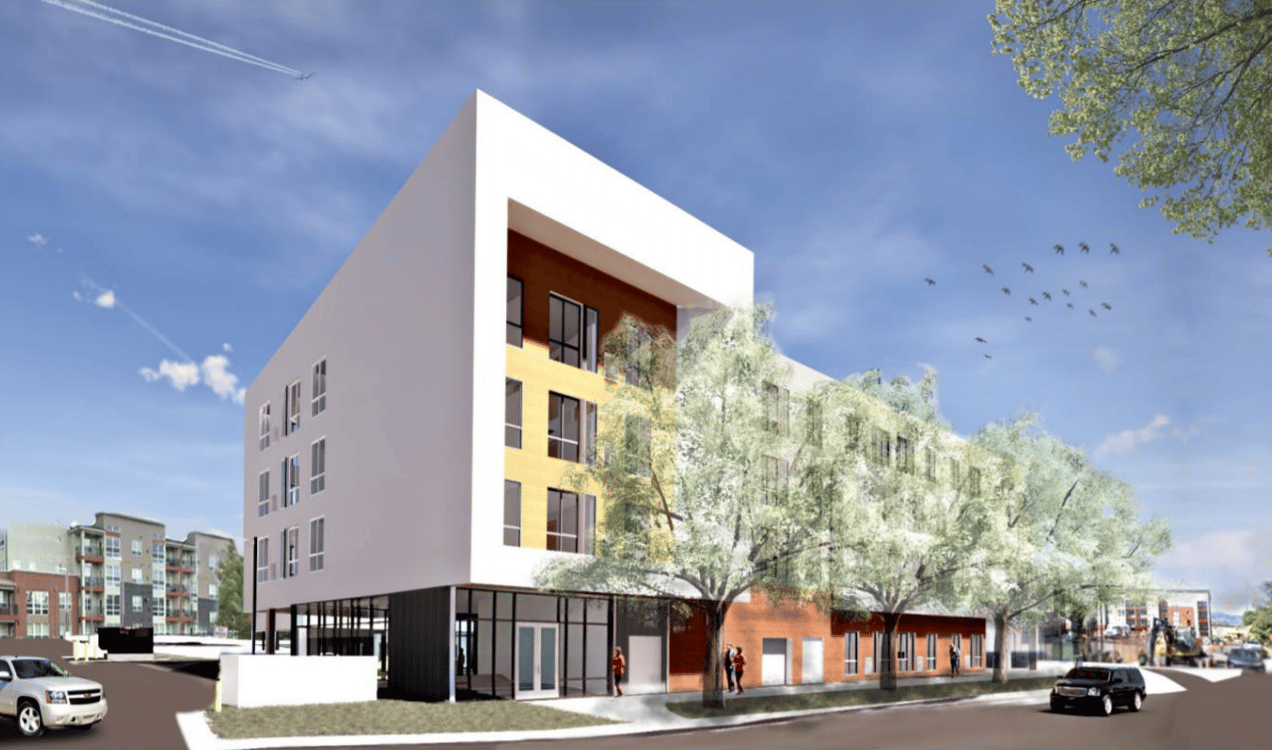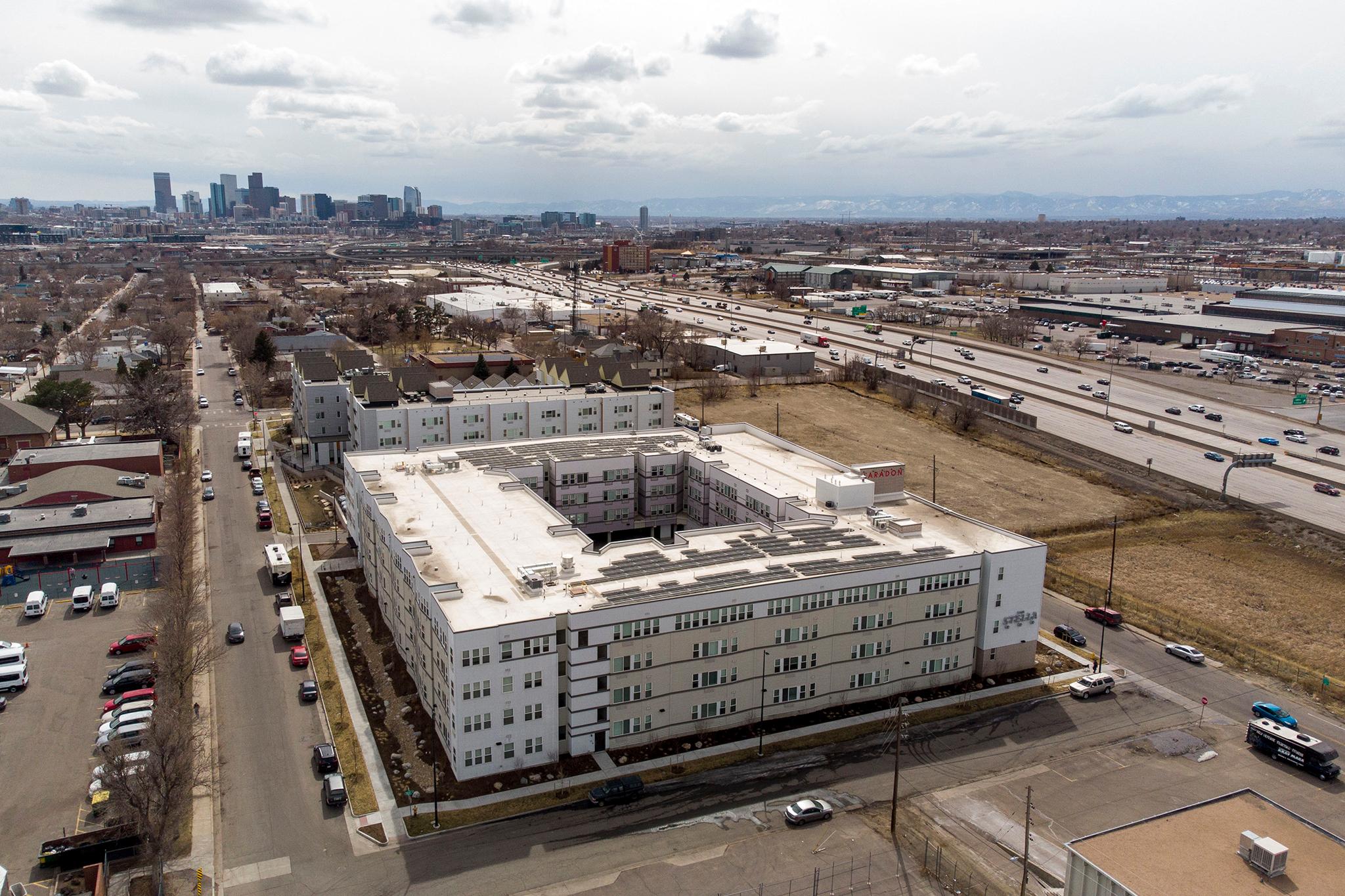Over the past year, developers have been stumping about their takes on Expanding Housing Affordability, Denver's latest attempt to build more income-restricted housing and address a massive housing shortage through a change in city law. The policy has been making its way through City Council, which is scheduled to vote on it on June 6.
Here's the rub: The developers don't all agree on the policy.
Some say the government needs to butt out of development and let the market take care of itself. Others say the city is doing the right thing, attempting to pass a policy that forces developers to play a larger role in solving the affordable-housing shortage. Sure, the Expanding Housing Affordability policy is not enough. But it's a start. In the meantime, some low-income-housing advocates say the plan does far too little to solve the housing shortage which is causing displacement -- and in some cases, homelessness -- of Denverites.

Here's what the Expanding Housing Affordability plan would do.
The intent of the Expanding Housing Affordability policy is "to create more affordable housing options for our workforce as well as increase funding for Denver's Affordable Housing Fund," according to Community Planning and Development.
The new policy would mandate that developers building new residential developments of 10 units or more make between 8% and 12% of their projects income-restricted. In some higher-cost parts of the city, they would need to provide 2% to 3% more income-restricted units.
That new housing would serve buyers making between 60% and 90% of the area median income, which is $94,320 for a three-person family. The target area median income would be determined by how many new income-restricted units were created and whether they were for sale or for rent.
These units would not be built for the city's lowest-income residents and would not directly address homelessness. But they would be much-needed new workforce housing geared toward teachers, nurses, firefighters and the like, who are increasingly unable to stay in Denver.
The policy would also increase what's called a "linkage fee," which is already in place. Developers building fewer than nine units would pay money, per unit, toward the city's Affordable Housing Fund. That pool of money, which is also funded through other taxes, would create more "deeply-affordable housing," for the city's lowest-income residents.
In addition to these requirements and fees, the city would incentivize developers to create even more income-restricted housing than they must. Those incentives might include flexible parking requirements, increased height allowances and permit-fee reductions to allow the developers to build more housing units and increase supply.

Here's what the opponents say.
Some developers, like RiNo heavyweight Andy Feinstein, have been raging against mandating the construction of income-restricted housing and higher linkage fees.
"Anytime the government sticks its nose in the private market of homebuilding, they make the problem worse," he said. "It always happens. It happens everywhere: Portland, Seattle, Chicago, Los Angeles."
The plan will raise the cost of new construction, and either developers will cut costs -- and therefore quality -- or they will choose to build elsewhere or raise prices for renters and buyers, making the city even more unaffordable, he said.
Drew Hamrick, of the Colorado Apartment Association, a trade organization for landlords, is also opposed to the idea of mandating new construction of affordable units in rental housing or increasing linkage fees. He argued what would amount to a 4% increase in cost would get passed on to renters whose units are not income-restricted.
"It has an inflationary impact on everybody who's not subsidized," he said. "Four percent's not catastrophic, but it's still significant. And we think it's a bad idea."
He also argued that the proposal is trying to create more income-restricted housing for people at the wrong income level. Instead, the city should incentivize developers to build more housing for people making 80% to 100% of the area median income -- those in the missing middle who are also struggling to live here. While the proposal does address the needs of homebuyers making up to 90% of the area median income, it does not do so for renters at that income level.

Here's what proponents of the plan say.
Urban Ventures CEO Susan Powers, the powerhouse developer behind multiple projects in the Highlands, RiNo and LoDo, has served on the Expanding Housing Affordability committee and has watched the proposal go through multiple drafts. The city has attempted to take into account various concerns and create a proposal everybody can live with. She also acknowledged the policy is far from a total fix for the affordability issues.
"It's not a drop in the bucket," she said. "That's probably not a fair thing to say, but it's not the answer to all the affordability issues."
Still, it will help, and it's the most pressing policy the public has been weighing recently. As she sees it, the mandates and linkage-fee hikes are reasonable and will not slow development.
Powers thinks the panic from some of her colleagues, who believe the plan will halt naturally occurring affordable housing, is misguided.
"I don't think the sky is falling," she said. "We've been through this every time there's a regulation that comes out. Everybody says that the market will stop having an interest in Denver. And look at all the cranes!
"I mean, it's not going to be that serious of an impediment for people to do development," she continued. "People have to get financing. The construction costs have to get in line here. And those are different issues. But, you know, we've looked at the numbers... We feel like these requirements are very reasonable."

The policy was crafted in consultation with developers and others in the real estate industry, and the city based the proposal's numbers on how much developers wanted to make on any given property, she said. While that limited how much affordable housing would be built through the program, it also gave the city confidence that the program could pass through City Council without too much objection.
As for concerns that the people who will pay for the new builds will not be developers but residents, she noted that developers are already charging every penny they can.
"Every time I have a conversation about this with my development friends, I say to them, 'Aren't you charging the most you can charge now? Isn't that what the market does?'" she said. "So when you come back and say, 'Well, we'll just have to be charging more than that,' I'm not sure that's the case. It just means that they have to either have more reasonable expectations on their profit or they have to save money in other areas for how they're developing it. And if they are in areas where they have the ability to increase rents, they can do that."
Powers teamed up with a group of other high-profile developers, including Kimball Crangle, Amy Cara, Fiona Arnold, Dana Crawford, Shannon Cox Baker, and Kristy Green, to draft a letter to City Council supporting the policy -- but also expressing that it's one of many actions the government needs to take to adequately address the housing shortage.

So what other solutions do developers propose?
Powers pointed to new income-restricted housing projects from her colleagues at Gorman and Company as a part of the solution and argued there needs to be multiple approaches from both the city and the development community.
In the letter she penned with fellow developers, they offered the following: "We recognize that this new initiative is not the solution to the full range of affordable housing needs in Denver. In addition, we appreciate all the other programs and funding sources that are being prioritized by the City of Denver to address the continuum of housing needs in our community. But more needs to be done and we ask that you and the City staff continue to explore other ways to help our industry reduce the cost of developing this much needed housing. This could include reduction in City and Denver Water tap fees, providing City owned land and pulling all levers to ensure that we can solve this critical problem."
For Feinstein, the appropriate role of government in solving the lack of housing is doing whatever it takes to increase supply and then getting out of the way.
"There's a public solution, and that is: You have to juice the supply, not restrict the supply with more rules and regulations," he said. "Juice the supply! If that means allowing developers to build housing out of shipping containers, I don't care. Or converting B- and C-class office buildings, I don't care. Juice the supply: ADUs, office-building conversions, modular housing. Juice the supply.
"Here's another one for you," Feinstein added. "Take city-owned property that they're not doing anything with and give it away to developers, as long as they provide 50% affordable housing. I don't care. You know, you've gotta juice the supply."











